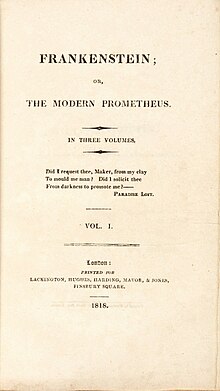American Literary Criticism Since The 1930s Pdf Programs Average ratng: 5,2/10 1757votes
American Literary Criticism Since the 1930s fully updates Vincent B. Leitch's classic book, American Literary Criticism from the 30s to the 80s following the development of the American academy right up to the present day. Updated throughout and with a brand new chapter, this second edition: * provides a critical history of American literary theory and practice, discussing the impact of major schools and movements * examines the social and cultural background to literary research, considering the role of key theories and practices * provides profiles of major figures and influential texts, outlining the connections among theorists * presents a new chapter on developments since the 1980s, including discussions of feminist, queer, postcolonial and ethnic criticism. Comprehensive and engaging, this book offers a crucial overview of the development of literary studies in American universities, and a springboard to further research for all those interested in the development and study of Literature.
[download] ebooks american literary criticism since the 1930s pdf AMERICAN LITERARY CRITICISM SINCE THE 1930S American literary criticism since the 1930s - official. Download and Read American Literary Criticism Since The 1930s American Literary Criticism Since The 1930s Find loads of the book catalogues in this site as the choice.
New Criticism was a movement in that dominated in the middle decades of the 20th century. It emphasized, particularly of, to discover how a work of literature functioned as a self-contained, self-referential aesthetic object. The movement derived its name from 's 1941 book The New Criticism. The work of English scholar, especially his Practical Criticism and The Meaning of Meaning, which offered what was claimed to be an empirical scientific approach, were important to the development of New Critical methodology. Also very influential were the of, such as ' and ', in which Eliot developed his notion of the '. Eliot's evaluative judgments, such as his condemnation of Milton and Shelley, his liking for the so-called and his insistence that poetry must be impersonal, greatly influenced the formation of the New Critical canon.

Contents • • • • • • Formalism theory [ ] New Criticism developed as a reaction to the older philological and literary history schools of the US North, which, influenced by nineteenth-century German scholarship, focused on the history and meaning of individual words and their relation to foreign and ancient languages, comparative sources, and the biographical circumstances of the authors. These approaches, it was felt, tended to distract from the text and meaning of a poem and entirely neglect its aesthetic qualities in favor of teaching about external factors. On the other hand, the literary appreciation school, which limited itself to pointing out the 'beauties' and morally elevating qualities of the text, was disparaged by the New Critics as too subjective and emotional. Condemning this as a version of Romanticism, they aimed for newer, systematic and objective method. It was felt, especially by creative writers and by literary critics outside the academy, that the special aesthetic experience of poetry and literary language was lost in the welter of extraneous erudition and emotional effusions. Kamus Bahasa Arab V3.0 Untuk Windows 7.
Heather Dubrow notes that the prevailing focus of literary scholarship was on 'the study of ethical values and philosophical issues through literature, the tracing of literary history, and. Political criticism'. Literature was approached and literary scholarship did not focus on analysis of texts. New Critics believed the structure and meaning of the text were intimately connected and should not be analyzed separately.
In order to bring the focus of literary studies back to analysis of the texts, they aimed to exclude the reader's response, the author's intention, historical and cultural contexts, and moralistic bias from their analysis. These goals were articulated in Ransom's 'Criticism, Inc.' And 's 'Miss Emily and the Bibliographers'.
Close reading (or explication de texte) was a staple of French literary studies, but in the United States, aesthetic concerns, and the study of modern poets was the province of non-academic essayists and book reviewers rather than serious scholars. But the New Criticism changed this. Though their interest in textual study initially met with resistance from older scholars, the methods of the New Critics rapidly predominated in American universities until challenged by Feminism and in the 1970s.